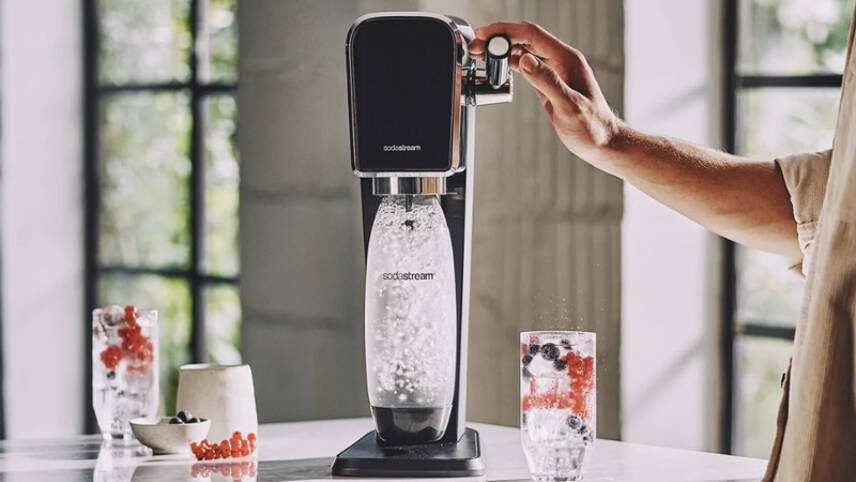Register for free and continue reading
Join our growing army of changemakers and get unlimited access to our premium content

Image: SodaStream
Announced today (5 December), the commitment builds on PepsiCo’s already public pledge to reduce the amount of virgin plastic used per serving of beverage by 2030.
PepsiCo is striving to meet this target through a combination of increasing refillable use and procuring more non-virgin plastic to use in its packaging. On this latter point, it is aiming to reduce the use of virgin plastic across its packaging portfolio by 35% by 2025, and to achieve an average of 25% recycled content in the same timeframe. The European market is moving quicker in this respect than other markets.
Regarding reusables and refillables, PepsiCo is the owner of SodaStream, which produces machines that can be used in homes and businesses to create sparkling water and other carbonated beverages in reusable models. Scaling SodaStream’s offerings will play a role in meeting the new target. PepsiCo launched professional SodaStream offerings in France this year and is set to scale the initiative in other European markets in 2023. PepsiCo has owned SodaStream since 2018.
PepsiCo also offers concentrated powder drinks, through its Gatorade brand in Europe.
Another refill offer already trialled by the business has been reusable cups at venues which use cups, such as stadiums and restaurants. PepsiCo has tested various approaches here in partnership with the Closed Loop Partners NextGen Consortium, whose members also include McDonald’s, Starbucks, Wendy’s, Peet’s, Wendy’s and The Coca-Cola Company USA. WWF acts as the Consortium’s advisory partner.
“Fundamentally transforming the traditional beverage consumption model will require making reusable and refillable options accessible and convenient, at scale, for European consumers – and that’s what we aim to do,” said PepsiCo Europe’s chief sustainability officer Katharina Stenholm.
Industry-wide moves
Earlier this year, PepsiCo’s biggest competitor, the Coca-Cola Company, pledged to ensure that 25% of its drinks are sold in refillable or returnable packaging by 2030. The proportion in 2021 was around 16%. Coca-Cola made the move following pressure from investors.
Both firms have been slammed by environmental groups for failing to scale up reusables in the past and for the fact that, despite improvements in packaging recyclability, their packaging is still commonly littered. Surfers Against Sewage’s latest annual report on branded items from litter picks named Coca-Cola and PepsiCo among the ‘dirty dozen’ – the 12 companies producing the most commonly littered packaging formats.
Changing legislation
The news from PepsiCo comes shortly after the European Commission outlined proposals for sweeping changes to regulations relating to packaging manufacturing and waste management.
The overarching ambition is for EU member states to reduce packaging waste, on a per-capita basis, by 15% by 2040, against a 2018 baseline.
Manufacturers will be subjected to new requirements on recyclability, recycled content and phasing out unnecessary, hard-to-recycle items and components.
There will also be a requirement for certain companies, including food and drink takeaway firms and online retailers, to offer a certain percentage of their products in reusable formats. A proposed percentage has not yet been provided.


Please login or Register to leave a comment.